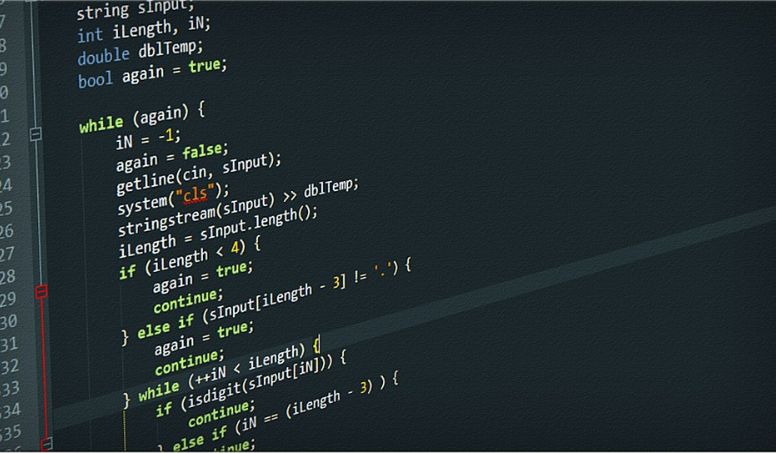C programming is one of the most foundational and widely used languages in the field of computer science. Known for its versatility and efficiency, it has laid the groundwork for many modern programming languages. However, for students who are new to coding or even those familiar with other languages, completing C programming assignments can often feel daunting. This guide delves into various aspects of C programming, providing insight into how you can excel in your assignments with confidence and mastery.
Table of Contents
ToggleUnderstanding the Basics of C Programming
Before diving into C programming assignments, it is crucial to have a solid understanding of the fundamentals. C is a general-purpose language developed in the early 1970s by Dennis Ritchie. It was created to write the UNIX operating system and has since evolved into a widely adopted language for systems programming, embedded systems, and more. Some of the key features of C include:
- Low-Level Memory Access: C provides direct access to memory through pointers, making it suitable for system-level programming.
- Portability: C code is portable, meaning it can run on different hardware architectures with little to no modification.
- Rich Library Support: C has a robust standard library that provides many functions for input/output, string manipulation, memory allocation, and more.
- Modularity: Programs in C are organized into functions, making code reusable and maintainable.
Understanding these fundamental aspects is essential for tackling assignments, as they provide the building blocks for more complex operations.
Breaking Down C Programming Assignments
C programming assignments typically test your understanding of concepts such as data structures, algorithms, memory management, and syntax. Here’s a breakdown of common topics you might encounter in your assignments and strategies to tackle them.
1. Variables and Data Types
At the core of any C program are variables and data types. C supports several data types, including integers, floating-point numbers, characters, and more. For example:
int age = 20;
float salary = 2500.50;
char grade = 'A';
In assignments, you’ll need to declare and initialize variables, ensuring they are of the correct data type. Understanding how data types work is crucial as incorrect usage can lead to errors in memory allocation or computational precision.
2. Control Structures (If-Else, Loops)
Control structures allow programs to execute code based on certain conditions or repeat code multiple times. The most common control structures you’ll encounter are if-else statements and loops (for, while, and do-while). For instance:
if (age >= 18) {
printf("You are an adult.\n");
} else {
printf("You are a minor.\n");
}
In assignments, control structures are often used to handle decision-making and iteration. Practice tracing the flow of your program to ensure it behaves as expected.
3. Functions
Functions are reusable blocks of code that perform a specific task. They make your code modular and easier to maintain. When writing a function, you’ll define its return type, name, and parameters. Here’s an example of a simple function:
int add(int a, int b) {
return a + b;
}
In assignments, you may need to write multiple functions to break down complex problems into smaller, manageable parts. Practice writing functions that are self-contained and reusable.
4. Arrays and Strings
Arrays in C allow you to store multiple values of the same data type in contiguous memory locations. Strings, which are essentially arrays of characters, are heavily used in C programming assignments. Here’s an example:
int numbers[5] = {1, 2, 3, 4, 5};
char name[20] = "John Doe";
Handling arrays and strings requires understanding pointers and memory allocation, as you’ll often need to manipulate elements directly.
5. Pointers and Memory Management
One of the trickiest aspects of C programming is mastering pointers and dynamic memory allocation. A pointer is a variable that stores the memory address of another variable. For example:
int *p;
int num = 10;
p = #
Pointers are powerful tools in C programming, allowing you to manipulate data stored in different memory locations. However, incorrect usage can lead to errors like segmentation faults or memory leaks. In your assignments, always ensure that you properly allocate and deallocate memory using functions like malloc() and free().
6. Structures
Structures in C allow you to group related variables of different data types into a single unit. They are especially useful in complex assignments where you need to represent more complex data entities, like student records or employee information. Here’s an example:
struct Student {
int roll_number;
char name[50];
float marks;
};
You’ll often use structures to model real-world entities in your assignments. Practice initializing and accessing members of a structure.
Common Challenges Faced in C Programming Assignments
C programming assignments come with their own set of challenges. Understanding these can help you avoid common pitfalls and improve your problem-solving skills.
1. Syntax Errors
C is a statically typed language with strict syntax rules. One missing semicolon, or mismatched brackets, can lead to compilation errors. Always carefully review your code for syntax errors and use an Integrated Development Environment (IDE) that highlights potential issues.
2. Segmentation Faults
Segmentation faults occur when your program tries to access a memory location that it is not allowed to. This often happens when working with pointers. To avoid segmentation faults, always ensure that your pointers are initialized correctly and that you are accessing valid memory locations.
3. Logical Errors
Unlike syntax errors, logical errors won’t prevent your program from compiling, but they will cause it to behave unexpectedly. Debugging logical errors requires you to carefully trace the flow of your program and test it with various inputs.
4. Memory Leaks
Memory leaks occur when you allocate memory dynamically using malloc() but forget to free it using free(). This can lead to inefficient memory usage and crashes in long-running programs. Always ensure that every dynamically allocated memory block is freed when it is no longer needed.
5. Understanding Problem Statements
Sometimes, the biggest challenge is understanding the assignment prompt itself. Many assignments are written in technical jargon, and it’s essential to break down the problem statement into smaller tasks before attempting to solve it.
Tips for Successfully Completing C Programming Assignments
Now that you’re aware of the common challenges, here are some tips to help you succeed in your C programming assignments:
- Start Early: Programming assignments can be time-consuming, especially if you encounter bugs or logical errors. Give yourself plenty of time to complete your work.
- Break Down the Problem: Don’t try to solve the entire assignment in one go. Break the problem into smaller tasks, and solve each one individually before integrating them.
- Use Comments: Commenting your code helps not only in making your code more readable but also in identifying errors. Write comments that explain the purpose of each function or block of code.
- Test Thoroughly: Always test your code with different inputs to ensure it works under all conditions. Start with simple test cases, and gradually move on to more complex ones.
- Seek Help When Stuck: If you’re struggling with a concept or an error, don’t hesitate to ask for help. Whether it’s from classmates, instructors, or online communities, getting a second opinion can provide new insights.
- Practice Regularly: The key to mastering C programming is consistent practice. The more programs you write, the more comfortable you will become with the language.
Conclusion
C programming may seem challenging at first, but with a clear understanding of its core concepts, effective problem-solving strategies, and consistent practice, you can excel in your assignments. Remember to focus on building a solid foundation, breaking down complex tasks into manageable pieces, and thoroughly testing your code. With time and effort, you’ll not only complete your assignments with ease but also develop a deep appreciation for the elegance and power of C programming.











